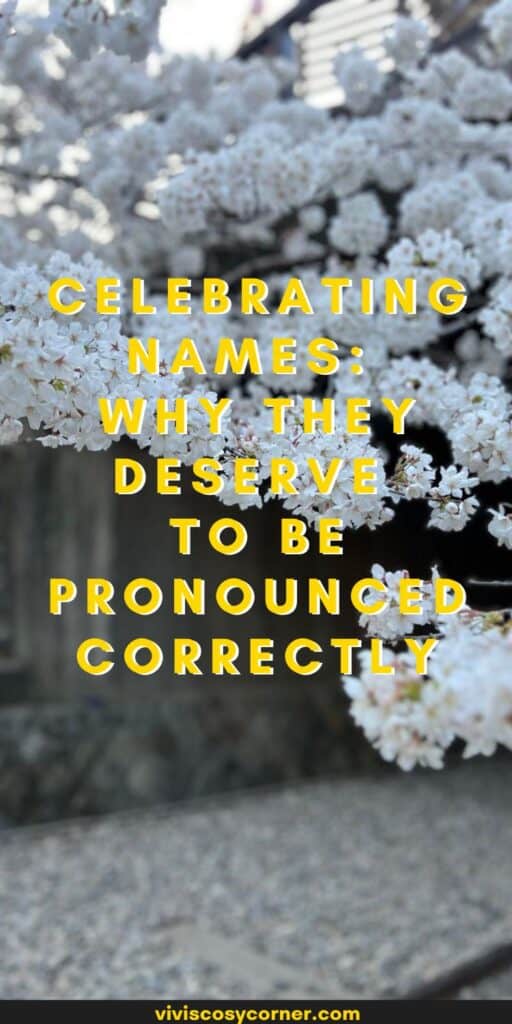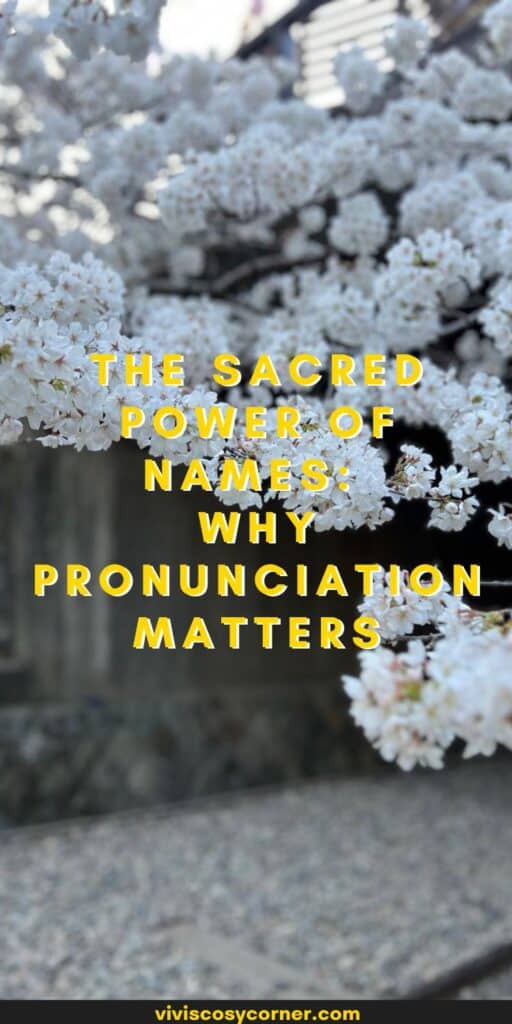There’s something deeply personal about hearing your name said and spelled correctly. It’s a small gesture with a big meaning. A simple act that says, I see you. I respect you. You belong.
But what happens when that gesture is missing?

When Getting Names Wrong Feels All Too Familiar
I’ve lost count of how many times people have gotten my name wrong, even those who should have known better. A manager I worked with for months kept misspelling my name on every email, even after I signed off with the correct spelling. A colleague followed suit, echoing the same carelessness. And a stranger who reached out to collaborate? They spelled my name wrong not once, but twice.
Each time, I paused.
Was this just an oversight? A typo? A moment of forgetfulness?
But when it keeps happening, especially after gentle corrections, it stops feeling accidental. It starts to feel intentional.
And over time, I realized: this isn’t just bad etiquette. It’s a quiet message that says, “You don’t matter enough to get right.”
The Hidden Impact of “Small” Slights
It might seem minor to some: “It’s just a name.” But for many of us, especially those from underrepresented backgrounds, it’s never just a name.
Our name isn’t just a label.
It’s our heritage. Our history. Our culture. Our very first identity.
Getting it wrong, repeatedly isn’t just clumsy. It’s erasing like an afterthought.
And yes, I’ve learned to address it. To educate. To correct with kindness but clarity. Because left unchecked, these micro-dismissals compound into something far more damaging: they chip away at your confidence, your inclusion, your sense of belonging.
The Sacred Power of Names: Why Pronunciation Matters
My names are Nneka Ogechukwu (N-neh-kah Oh-geh-choo-koo). They mean “My mother is great”, and “God’s Time” in Igbo, a Nigerian language. They carry the echo of my lineage. My pride. My place in this world.
So, when someone gets it right, it feels like home, where I am fully seated at the table. When they don’t, even after reminders, it feels like being pushed to the edges of a room you were invited into.
This isn’t about perfection, it’s about respect. Respect is in the details. Respect doesn’t always shout. Sometimes, it’s as quiet as taking five seconds to double-check the spelling of someone’s name before hitting “send.”
And I know I’m not alone. For immigrants, refugees, people of colour, and anyone whose name isn’t considered “easy” or “common” where they live or work, this happens often.
What Mispronouncing a Name Really Says
Getting someone’s name wrong once is a mistake. But getting it wrong repeatedly? That’s a message. It says:
- “You’re not significant enough for me to learn.”
- “Your difference is inconvenient.”
- “Your identity is optional.”
And no one should feel like a footnote in their own story.
This Isn’t Just About Names, It’s About Inclusion
Belonging starts with the basics: Your name is the first word that signals you belong, or that you don’t.
Inclusion lives in the details: It’s easy to talk about DEI (diversity, equity, inclusion) in policy. But real inclusion shows up in how we greet people, how we label them, and whether we truly see them.
Trust is built moment by moment: When you honour someone’s name, you honour their dignity. And that creates space for real connection, creativity, and contribution.

Why This Is an Essential Part of Cultural Intelligence
Cultural intelligence isn’t about memorizing holidays or learning to greet someone in ten languages. It’s about respecting and honouring what matters to others, especially when it’s unfamiliar to you.
And names? They’re sacred ground.
Taking the time to learn someone’s name shows that you’re:
- Willing to step outside your comfort zone
- Open to learning about other cultures
- Committed to treating others as equals, not exceptions
In an increasingly global world, where teams span continents and collaboration happens across cultures, names are the first entry point to deeper inclusion.
Cultural intelligence is no longer a “nice to have.”
It’s essential for effective leadership, inclusive teams, and authentic relationships, whether at work, in classrooms, or across dinner tables.
It enables leaders and teams to create safe spaces where people do not need to edit themselves to be accepted. It also demonstrates that you value diversity and the identities it brings.
A Gentle Guide for Getting Names Right
- Ask with curiosity, not fear.
“Could you help me pronounce your name correctly? I really want to get it right.” - Listen actively. Practice. Write it phonetically if you need to.
(No shame in learning. There is in pretending.) - Correct with kindness. Accept correction with grace.
If it’s your name, own it. If it’s someone else’s, pause, apologize, and make it right. It matters more than you know. Thank them for the chance to learn. - Check your emails twice.
Misspelling someone’s name, especially when it’s right there in their signature, is dismissive.
And if you’re the one being overlooked, know this:
- You are not “too much” for expecting your name to be respected.
- You are not “sensitive” for correcting someone who gets it wrong.
- You are simply asking for the basic dignity we all deserve.
You Don’t Need to Be Perfect, Just Intentional
A name is never “too hard.” It’s only unfamiliar. And unfamiliar isn’t an excuse, it’s an invitation to grow.
So let’s build cultures: at work, in classrooms, on Zoom calls: where no one has to shrink their identity to fit in or fit another’s comfort zone.
Let’s make room for every name, every story, every person, exactly as they are.
So you can intentionally choose to learn how to pronounce a colleague’s name that you’ve been avoiding.
Ask them. Repeat it. Write it down. Remember it.
Then use it, with care and confidence.
They’ll never forget that you did. And neither will you.
You never know what story a name carries, until you choose to care enough to ask.
Thank you for being a VCC reader.

